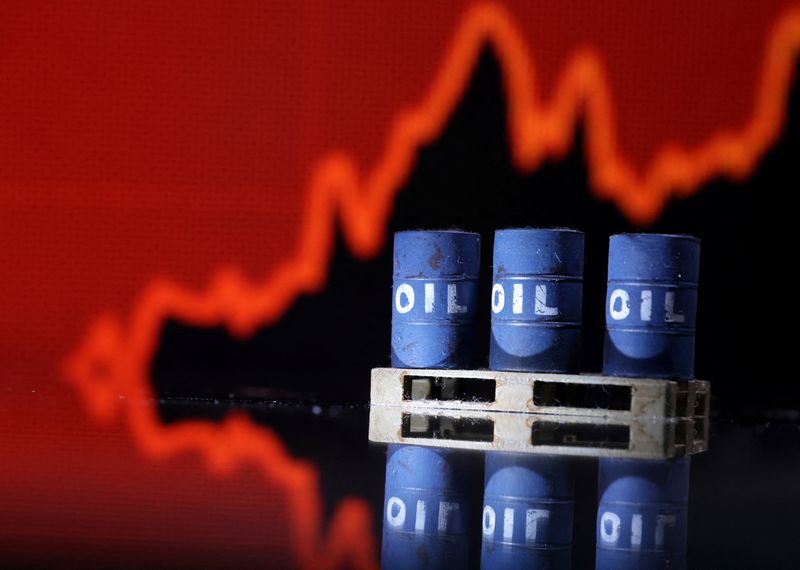By Natalie Grover
LONDON (Reuters) -Oil prices slipped by about 1% on Monday, with the market downplaying the risk of broader regional conflagration after Iran’s weekend attack on Israel.
futures for June delivery fell 99 cents, or about 1%, to $89.46 a barrel by 0933 GMT while West Texas Intermediate (WTI) futures for May delivery were down $1.05, or about 1.2%, at $84.61.
Oil benchmarks had risen on Friday in anticipation of Iran’s retaliatory attack, with prices touching their highest since October.
Iran’s attack involved more than 300 missiles and drones, and was the first on Israel by another country in more than three decades, raising fears of a broader regional conflict affecting oil traffic through the Middle East.
Iran saying it considers its retaliation to be over has lowered the geopolitical temperature, said Kpler analyst Viktor Katona, while John Evans at oil broker PVM said the Iranian drone and missile attack was “about as telegraphed a world event that people can remember”.
“They might as well have had big disco lights on them and towed banners with ‘come on ladies and gentlemen, please shoot me down’.”
The attack, which Iran called retaliation for an air strike on its Damascus consulate, caused only modest damage, with missiles shot down by Israel’s Iron Dome defence system.
“An attack was largely priced in over the days leading up to it. Also the limited damage and the fact that there was no loss of life means that maybe Israel’s response will be more measured,” said Warren Patterson, head of commodities strategy at ING.
Iran produces more than 3 million barrels per day (bpd) of as a major producer within the Organization of the Petroleum Exporting Countries (OPEC).

Middle East hostilities centred on the Israel-Hamas conflict in Gaza have had little tangible impact on oil supply so far.
“If the crisis does not escalate to a point that creates supply disruptions, then there will be downside risk over time, but only once it becomes clear Israel has chosen a measured response,” said Amrita Sen, founder and director of research at Energy Aspects.

